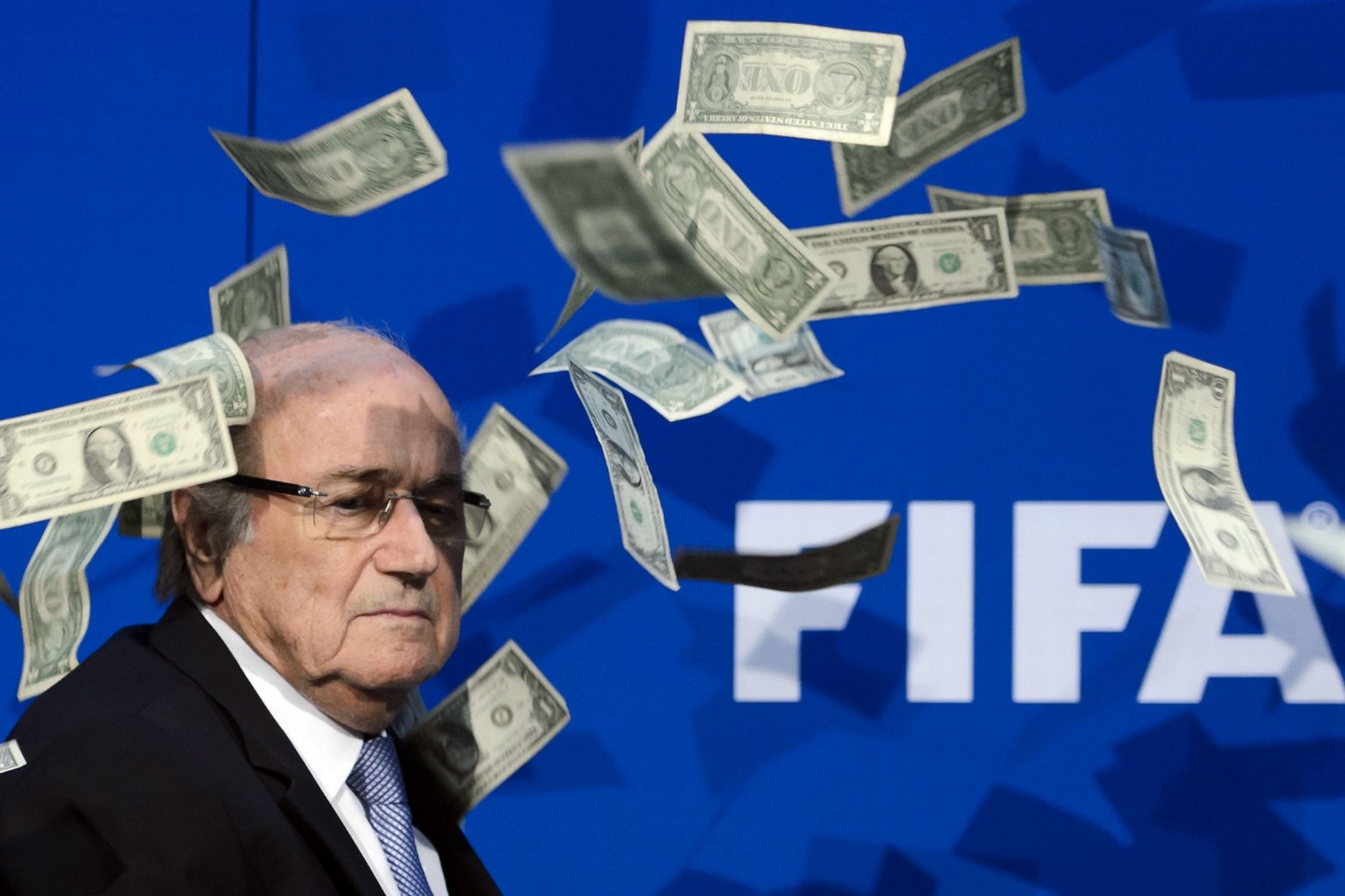FIFA, the global body that controls this beautiful game we know as football, are being investigated for bribery and corruption and it seems that the villains of the piece might be close to the very top echelons of the organisation.
If the allegations are proved to be correct, then you have to think the unthinkable and wonder how far down the chain of football administration, the stench of graft will seep.
Heaven forbid that we will eventually find that even the administration of our own national game is tainted.
There is a well known proverb: “Where there’s muck, there’s brass”. With so much brass swilling about in football now, the scope and opportunity for money to change hands for less than honest purposes is certainly there. Turning the saying around, we could find in FIFA’s case that “Where there’s brass, there’s muck”.
Now I’m not suggesting for one moment that evidence of match-fixing will be uncovered although I must admit that last season there were a number of decisions made by match officials that tested my own grasp of reality.
The trouble is that an incident on the pitch can look different depending on the angle that it is seen from. Something seen from behind a goal can look quite different to how it is seen from the side-line.
I remember one sending off at ML when our player was deemed to have led by the elbow while going up to head a ball. Seen from the view that the referee had, his red card decision was understandable. However when the incident was seen from the side, the referee’s blind side, it was clear that the opposing player had in fact maliciously thudded into the back of our player leading with his own elbow. And with such force, that our player had to throw his arms back to try in vain to keep his balance. A curious case of the aggrieved being deemed guilty. And you have to question what, if any, assistance the referee got from his assistant who would have surely seen things differently.
And more recently if the referee had been stood next to, instead of in front of, Laura Bassett when she received an elbow in the face from a French player in the Womens’ World Cup, she would have had no choice but to send off the aggressor. Instead, play continued unchecked, Laura finished up with a real shiner, and the aggressor got off scot-free for an act of aggression which, had it happened in any other public place, would have seen her arrested for assault.
So what I’m leading up to is to suggest that if the administrators of our game want the job of the referee to be made easier, then those running the line should be expected to exercise their full responsibilities as assistant referees. They should do exactly what it says on the tin, and assist the referee, telling him (or her) what they are seeing in the game.
I find it incredulous that in this, the age of communication, there seems to be precious little communication between not only match officials during a game but also between the referee and the spectators, either during or after a game.
I am not a rugby fan but there is one thing about that sport which I really admire and that is the level of communication between the match official and the paying public. The referee explains his rationale over the public address system and, by doing so, takes away a lot of controversy. Not only that but if he is in any doubt, he can call upon video technology to review an incident before he makes his decision to help minimise any doubt. Subsequently the quality of the decision-making in professional rugby is extremely high; much higher than it is in association football.
Detractors say that if this level of support was introduced to football, it would slow the game down. But which is the lesser of the two evils? To be forced to suffer bad decisions through a lack of communication, or to have informed decision-making as a result of better communication?
I know which I would prefer and I feel sure that referees would not be so vilified if they were encouraged to give their reasons for making controversial decisions.
All of which makes me want to question why it is that FIFA refuse to countenance any use of video technology to help referees, or why it is that they do not permit the referees to speak to the press or the public about their decision-making. What is it that prevents FIFA from wanting to give the game greater transparency?







Recommended Comments
Create an account or sign in to comment